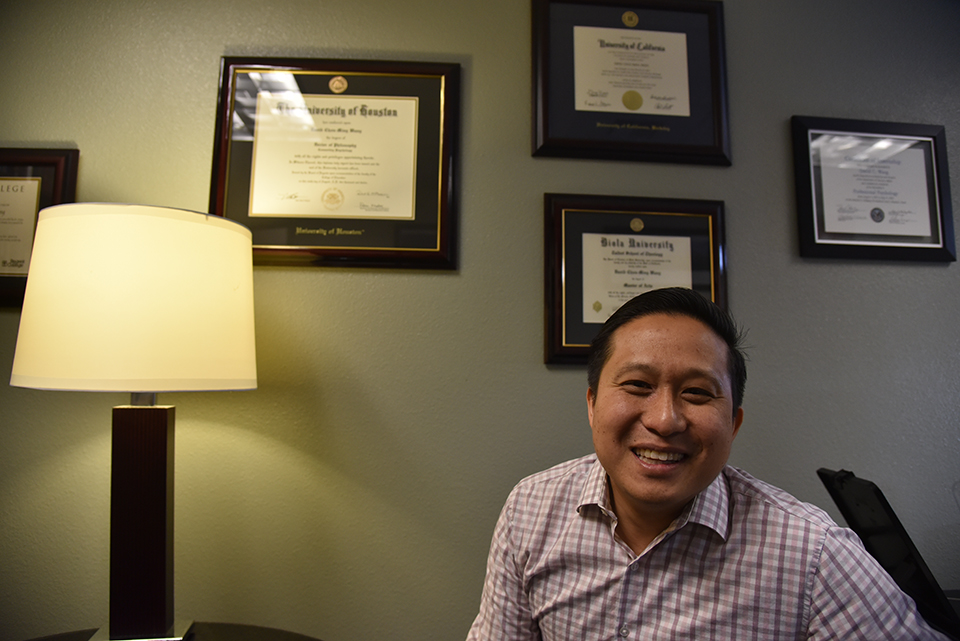David Wang, assistant professor at the Rosemead School of Psychology, is trying to answer the question: how is it possible to study the Bible yet not be a good person?
Transcendent and imminent
Wang was awarded a $217,000 grant in February, 2017 from the John Templeton Foundation for the spiritual and research development of seminary students. There are nine prestigious seminaries involved in this study: Talbot School of Theology, Fuller Seminary, Trinity Evangelical Divinity School, Pentecostal Theological Seminary, Southern Baptist Theological Seminary, Princeton Theological Seminary, Boston University, George Truett Theological Seminary and Ambrose Seminary.
His topic of study involves ways in which Christians can support and cultivate their spiritual lives as well as their overall character — not choosing one over the other. Through his research, Wang found two characteristics that stand out in connecting knowledge of the word of God to having good character. The first indicator of spiritual maturity is to see character embodied through relationships. The second is intercultural competency. This ultimately translates to relating to God on his terms rather than through cultural worldview assumptions. Though God loves his people, he is not like them — he is both transcendent and imminent.
“There’s a reason why Jesus became a man, because we need to see it in flesh and blood. It’s not enough to know things in theory — we have to see it right in front of us,” Wang said. “How comfortable are you, how skillful are you, how open are you to really, truly relate to someone who’s really different from you?”
Spiritual formation for future leaders
Chris Baker, assistant director at the institute for spiritual formation, feels Wang’s topic is worth pursuing.
“Preparation for ministry can’t stop with learning the skills of preaching and pastoral care — it has to extend into the spiritual formation of these future leaders,” Baker said in an email statement.
Baker also thinks the “Spiritual Formation Focus” is in good position to contribute to Wang’s study. The “Spiritual Formation Focus” is essentially a smaller version of the Institute for Spiritual Formation designed for the Talbot School of Theology.
In a recent Association of Theological Schools accreditation review, Talbot was commended for its emphasis on spiritual formation and direction. Greg Gannsle, professor of philosophy at Talbot, hopes for the best on the results of Wang’s research.
“I would hope it would help give seminaries more insight into how to weave spiritual formation into their curriculum,” Gannsle said. “I think we do a pretty good job at here at Talbot.”
Shaping theology and character
While Wang’s study focuses on the spiritual formation of seminary graduates, he also has much to say about the parallel to Biola’s undergraduate Bible requirement. Most seminaries agree knowledge of God is key, but it is not always sufficient in building lives of character. This is a problem in both undergraduate and graduate programs.
“We’ve met people who get straight A’s in these Bible classes, and they know a ton of stuff about the Bible,” Wang said. “Yet they suffer from very significant character flaws.”
This is only phase one of a three-part study — Wang is hoping to continue his efforts with the help of the John Templeton Foundation. The current research grant ends in August 2017.








